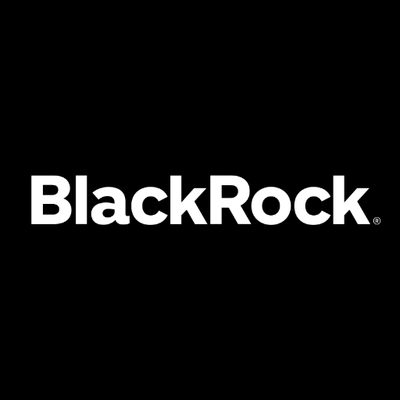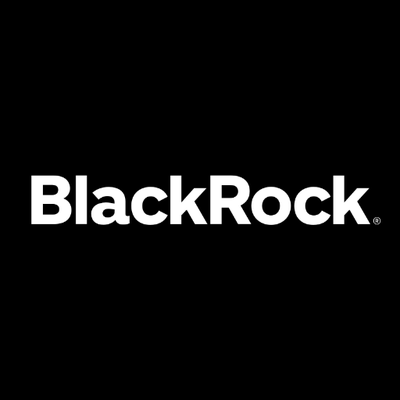Blackrock Income and Growth Investment Trust plc (LON:BRIG) has provided the following portfolio update:
All information is at 30 June 2020 and unaudited.
Performance at month end with net income reinvested
| One Month | Three Months | One Year | Three Years | Five Years | Since 1 April 2012 | |
| Sterling | ||||||
| Share price | 1.2% | 11.9% | -13.6% | -8.9% | 5.0% | 64.5% |
| Net asset value | 1.6% | 11.6% | -10.3% | -4.6% | 13.0% | 62.2% |
| FTSE All-Share Total Return | 1.5% | 10.2% | -13.0% | -4.6% | 15.2% | 53.5% |
| Source: BlackRock |
| BlackRock took over the investment management of the Company with effect from 1 April 2012. |
| At month end | |
| Sterling: | |
| Net asset value – capital only: | 173.79p |
| Net asset value – cum income*: | 177.50p |
| Share price: | 164.00p |
| Total assets (including income): | £44.1m |
| Discount to cum-income NAV: | 7.6% |
| Gearing: | 2.1% |
| Net yield**: | 4.4% |
| Ordinary shares in issue***: | 22,605,600 |
| Gearing range (as a % of net assets) | 0-20% |
| Ongoing charges****: | 1.1% |
| * includes net revenue of 3.71 pence per share |
| ** The Company’s yield based on dividends announced in the last 12 months as at the date of the release of this announcement is 4.4% and includes the 2019 final dividend of 4.60p per share declared on 24 December 2019 and paid to shareholders on 16 March 2020, and the 2020 interim dividend of 2.60p per share declared on 24 June 2020 and payable to shareholders on 1 September 2020. |
| *** excludes 10,093,332 shares held in treasury |
| **** Calculated as a percentage of average net assets and using expenses, excluding performance fees and interest costs for the year ended 31 October 2019. |
| Sector Analysis | Total assets (%) |
| Pharmaceuticals & Biotechnology | 8.4 |
| Household Goods & Home Construction | 7.5 |
| Support Services | 7.3 |
| Financial Services | 7.2 |
| Food Producers | 6.8 |
| Mining | 6.7 |
| Media | 6.5 |
| Banks | 5.0 |
| Gas, Water & Multiutilities | 4.9 |
| Tobacco | 4.7 |
| Oil & Gas Producers | 4.7 |
| General Retailers | 3.1 |
| Travel & Leisure | 3.0 |
| Food & Drug Retailers | 3.0 |
| Health Care Equipment & Services | 2.8 |
| Mobile Telecommunications | 2.5 |
| Life Insurance | 2.3 |
| Personal Goods | 1.6 |
| Nonlife Insurance | 1.4 |
| Electronic & Electrical Equipment | 1.3 |
| Industrial Engineering | 1.1 |
| Construction & Materials | 0.4 |
| Real Estate Investment Trusts | 0.4 |
| Beverages | 0.3 |
| Net Current Assets | 7.1 |
| —— | |
| Total | 100.0 |
| ====== | |
| Ten Largest Equity Investments | |
| Company | Total assets (%) |
| AstraZeneca | 6.8 |
| Unilever | 5.0 |
| Reckitt Benckiser | 4.9 |
| BHP | 4.8 |
| British American Tobacco | 4.7 |
| RELX | 4.6 |
| National Grid | 3.8 |
| Tesco | 3.0 |
| Smith & Nephew | 2.8 |
| Royal Dutch Shell ‘B’ | 2.7 |
Commenting on the markets, Adam Avigdori and David Goldman representing the Investment Manager noted:
Global markets rallied again in June, adding to the strong performance seen in April and May. Global equities have now rallied 37% since their March lows, with some indices making all-time highs. In spite of concerns around the pandemic and politics, US indices saw new all-time highs, with the S&P having its best quarter since 1998. Technology once again was the best global sector for the second month in a row. Markets are being driven higher on central bank-driven liquidity support, fiscal support from governments and hopes of a demand recovery as economies reopen.
The oil price continued to recover in June, supported by a new OPEC+ agreement to cut production while industrial commodities such as copper also rose on hopes of improving demand. Sovereign bond yields were volatile but, with central banks maintaining or increasing the pace of asset purchases, generally yields remain low. The Bank of England increased its quantitative easing programme by another £100 billion, which now totals £745 billion, whilst in Europe, hopes were raised after the European Union announced a proposed recovery fund to provide support to some of the worst affected countries.
Volatility remains elevated due to heightened uncertainty in markets, with value stocks beginning the month strongly, only to reverse these gains towards the end of the month as data on new coronavirus cases deteriorated again.
Further reopening measures continued across the UK with the return of non-essential retailers. The unemployment rate in the UK rose to 4%; limited by the furlough scheme supporting 9.1 million workers. UK furlough schemes are requiring company contributions from August which will provide greater transparency regarding the impact of this crisis.
Over the month of June, the FTSE All Share rose 1.54% with Utilities, Basic Materials and Financials outperforming and Health Care, Consumer Services and Consumer Goods underperforming. The Company returned 1.6%, outperforming the benchmark.
The Company’s holding in Standard Chartered was the top contributor to performance as banks reversed some of their losses. Serco contributed to the Company’s performance after a positive trading update highlighting the resilience of the business. The company reinstated guidance expecting strong earnings growth following significant contract wins and the contribution from acquisitions. M&G also contributed. The company benefitted from a trading update showing the company’s strong solvency ratio.
Smith & Nephew detracted from the Company’s performance. The share price fell as elective procedures have been impacted by covid-19 related lockdowns and the shares sold off as new coronavirus cases accelerated again in the US. Not owning Prudential also detracted; the shares rallied after the company announced that Athene holdings had taken a stake in Jackson National, its US business. The Company’s holding in Whitbread detracted from performance as Covid-19 and the associated economic lockdown continued to weigh on the shares as well as travel and leisure stocks more broadly. The company had a rights issue in June to ensure it has the liquidity to accelerate growth post-crisis.
Having been active through April and May, we did not materially move the portfolio in June. We participated in the Whitbread rights issue. We added to Reckitt Benckiser, M&G and Standard Chartered. We trimmed Vodafone, British American Tobacco and BP.
On Dividends:
At the time of writing, around £39.5 billion dividends have been cut or suspended in the UK market, and the UK dividend future is estimating around a 44% cut. We are mindful of the scrutiny companies will face with regards to paying dividends, especially for those businesses accepting government support or cutting employee remuneration and/or headcount. For now, the language from the majority of companies has been to suspend, rather than cut the dividend. From here, everything will depend on the duration and severity of this crisis as to how many of these dividends come back. We will continue to monitor the potential scenarios and would hope to provide more clarity later in the year. In the meantime, we will continue to take a long-term approach to dividends and manage the Company for the strongest total return. We will update our clients and the market as we get more clarity.
Outlook
The scale of the economic impact of the COVID crisis, the associated lockdown and central bank intervention became more evident during Q2. As referenced during our Q1 outlook, the hit to nominal demand and GDP was the highest on record. Q1 UK consumption was the weakest since 1979 at -2.9%, whilst Q2 is likely to be down c.20%. Government support also broke records, far outweighing anything seen during the financial crisis. In the UK, government borrowing is currently predicted to be £315bn for 2020/21 which represents almost 16% of GDP. This is almost double the amount (8.7%) of government borrowing in 2008/2009 and by far and away the largest in modern peacetime. Globally, more than $6 trillion has been pledged so far in support by central banks looking to limit the economic impact from the virus. This has supported risk assets globally, with a notable rise in markets from the bottom during the last six weeks of the quarter. Equity and debt markets have also been busy. In the UK, we have seen an extraordinary wave of issuance as companies have sought to improve liquidity through the crisis.
The recovery from here and the sustainability of the recent market rally depends on how fast consumption will pick up in the UK and globally. The foundation of this recovery will be built by the extent and method of the government intervention. We would expect the economy’s capacity (supply) to rebound quicker than demand and as such, would expect government policy to move from support towards stimulus. The role and type of economic stimulus to is likely to lead to material dispersion within the market over the medium-term. We expect to learn more during July, when the chancellor is due to provide another update.
We recognise the enormous uncertainty still facing society, employers and their employees today, whether it is the threat of a resurgence of the virus, the emergence of viable treatments and potential vaccines or the different speeds and ways in which governments remove restrictions and support. We continue to tread cautiously; balancing the significant long-term opportunity we see with a wide range of short-term scenarios and factors. Amongst these are clearly the impact of widespread unemployment, the changes to both consumer and business behaviour with regards to which products and services they consume and how they consume them in addition to the potential for inflation to pick up. Crucially, whilst we expect that the threat from Covid-19 will be addressed, either through a vaccine, rolling containment policies or herd immunity, it is the duration of the pandemic and associated containment policies that will be crucial in determining the state of the economy and speed of recovery thereafter.
In conclusion, we came into this crisis more defensively positioned which benefited the Company and leaves us in a strong position to take advantage of the dislocation. In times like these, the scale and breath of the platform at BlackRock allows us to leverage significant resources across stock analytics, market insights and data science. We know, from our experience in 2008/2009, how important these resources and support are and the opportunities it generates. In the weeks and months ahead, we will continue to utilise these resources and our previous experiences in uncertain markets to continue to build on the promising start to the year to ensure the Company emerges from this period of volatility well placed to deliver strong capital and dividend growth over the long term.
Finally, beyond markets and investments, we also recognise that this has been an extremely tough period for many. We have been encouraged by the support companies in the portfolio have provided their employees and communities and continue to support these initiatives.
24 August 2020
For more information on this Trust and how to access the opportunities presented by the income and growth sector, please visit: www.blackrock.com/uk/brig






































